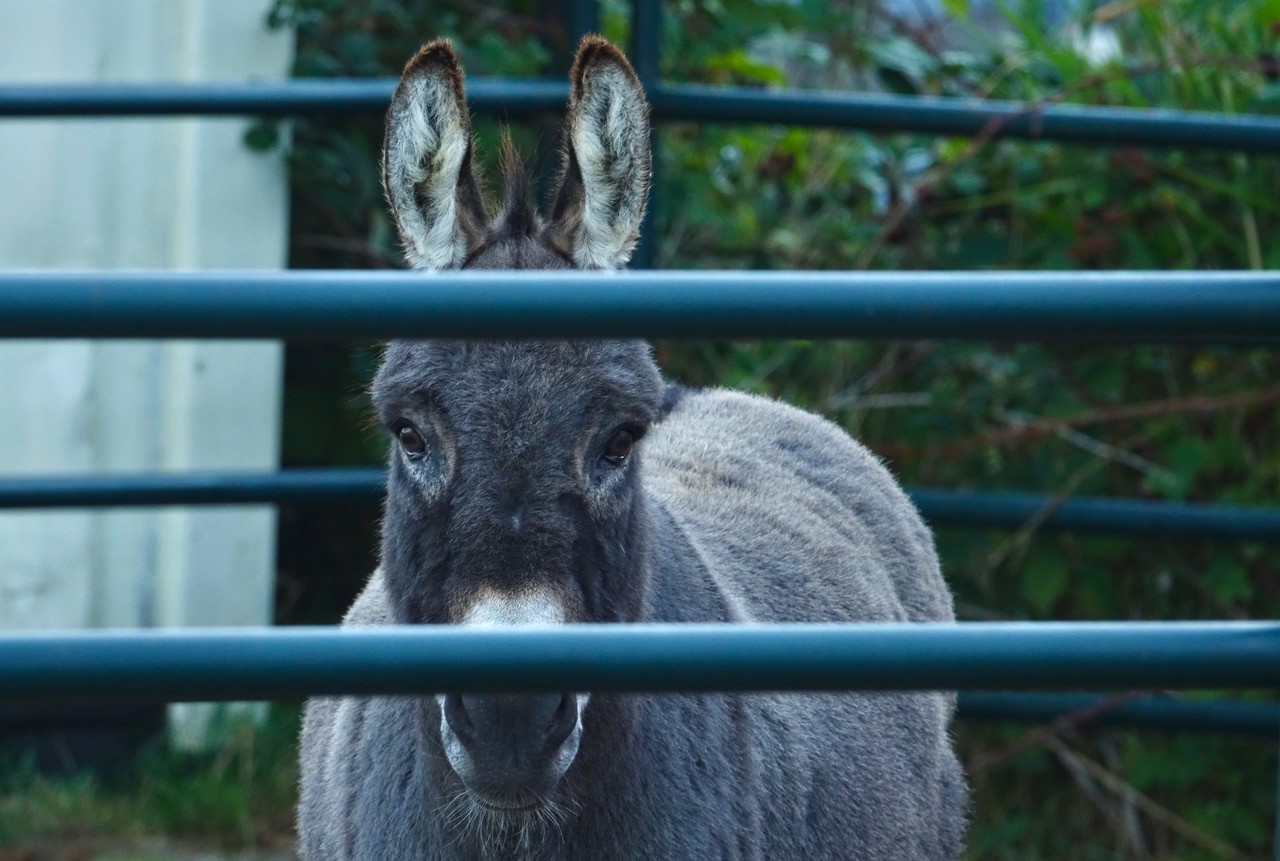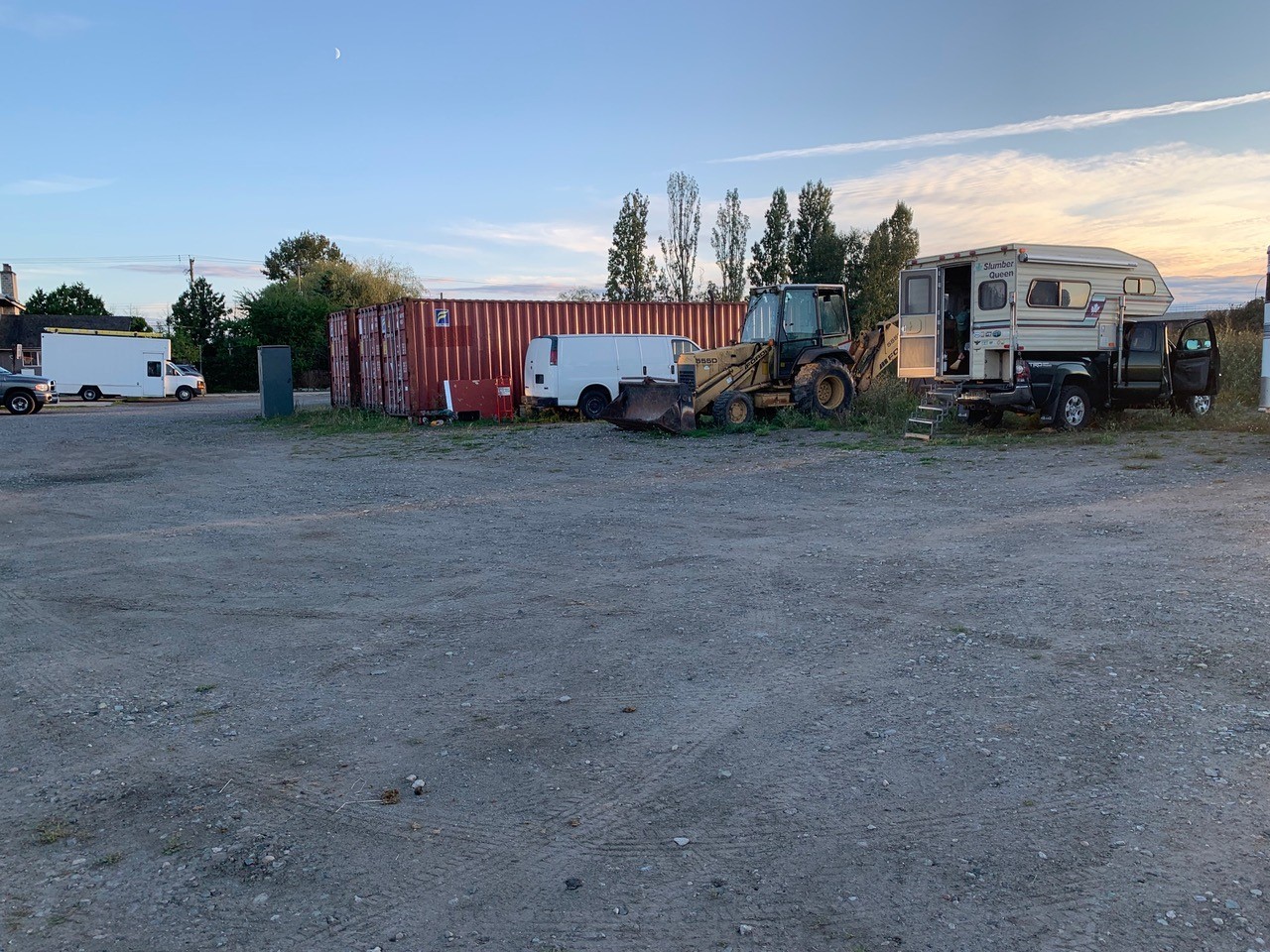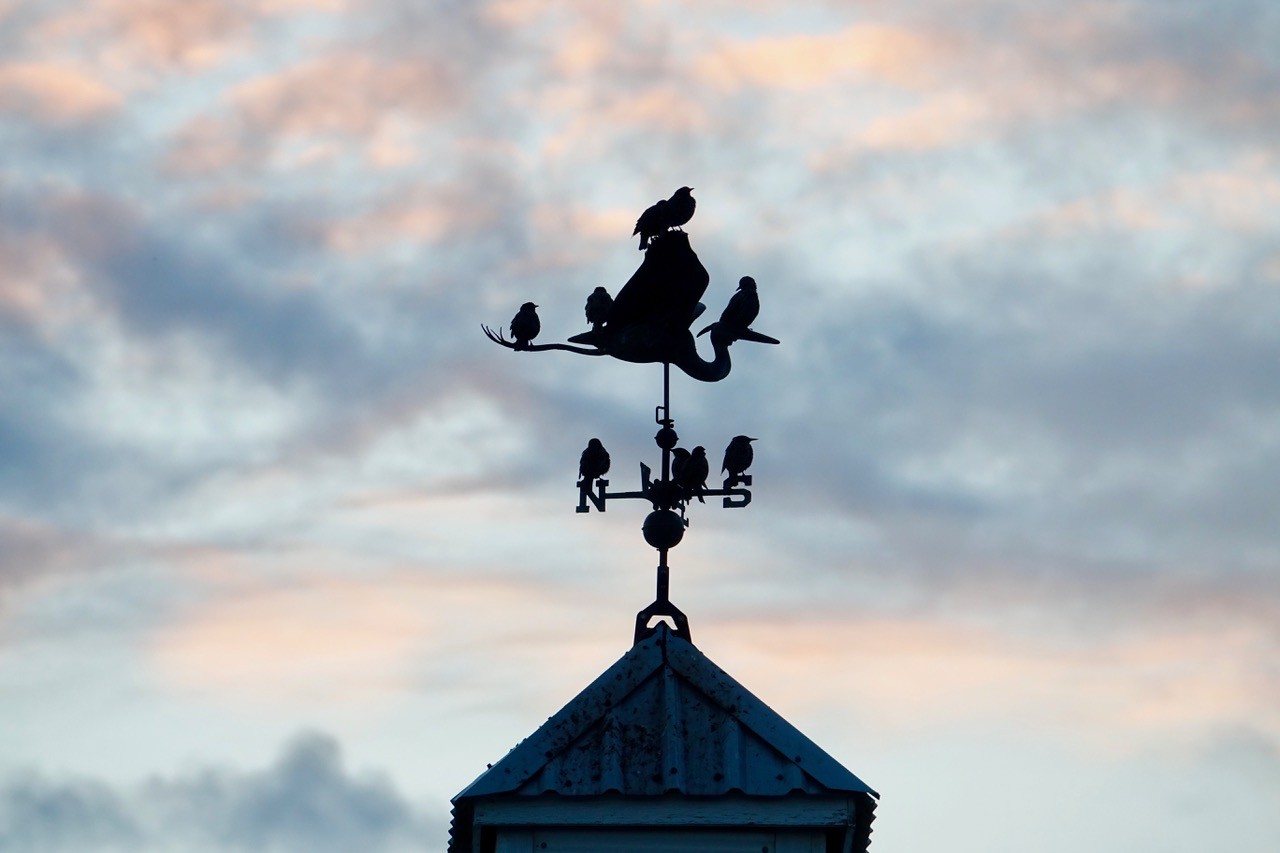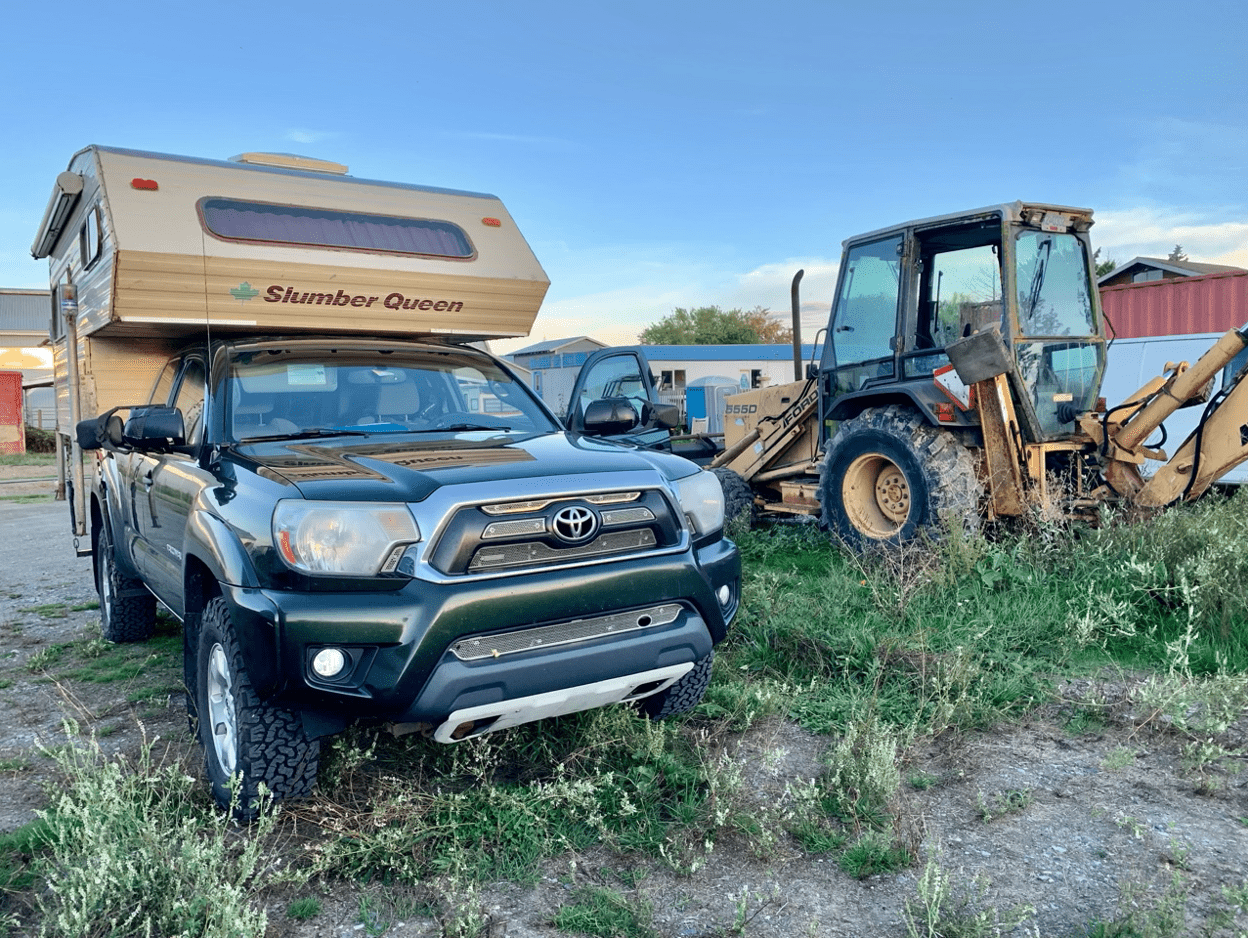When I headed to British Columbia’s Fraser River Valley for fall bird watching, camping spots were as scarce as a long-billed dowitcher (rare). Fortunately, a fellow horse-lover rents out the most basic of accommodation on Airbnb – a safe place to park – next to some horses and a short drive to the Tsawwassen ferry terminal for a budget-friendly $23. It was hands down the strangest Airbnb accommodation I’ve ever seen.

Parked in my Airbnb parking lot, a parrot squawk carried over the road noise of one of the lower mainland’s busiest roads. The soulful eyes of a grey donkey peered at me through a metal fence as it munched its evening hay. A miniature horse stood further back; its ears tilted towards me as it sniffed the humid breeze. It wasn’t “Away in a Manger”, but it was just as promised – a safe, inexpensive place to stop within minutes of a British Columbia ferry terminal. There was Wi-Fi, but no electricity, a porta-potty, but no water. Parked next to a backhoe, my temporary home felt industrial, but it was quieter than many RV parks I’d stayed in. And the Wi-Fi was better.

Slumber Queen in the Parking Lot – Photo Carol Patterson
Airbnb is expanding its offering of unique stays; campsites, farm stays, boats, barns, houseboats, tents, even castles are offered. These unusual properties can provide better value or unique travel experiences for those willing to step away from conventional accommodation.
In Britain, people are booking church stays, called champing, to avoid crowded campgrounds during the pandemic and to save money. For a modest fee, travellers reserve an overnight stay in a church. Camp cots, corkscrews (you bring the wine), and the occasional bat (flying, not the wooden kind) are included. Generally, heat and electricity – these are ancient buildings after all – are not.
Closer to home, Harvest Hosts offers RV camping at thousands of wineries, breweries, and farms. Camping is free, but you’re expected to spend a minimum of $20 on products sold by hosts. If you’ve got an RV (or rent one) and are self-contained (power, water and sewage hookups aren’t offered), this option can provide a chance to explore country properties not usually open to the public. And for foodies, it’s a great way to taste local cuisine and vintages.

Quiet sunset in the parking lot. Photo Carol Patterson
If you’re considering more adventurous accommodation like my strangest Airbnb accommodation, try these tips to reduce the stress and increase the fun:
- Research what’s included. In my case, a porta-potty and Wi-Fi was included, power was not. If you’ve got a serious Instagram habit or a family who loves their devices, power up before you arrive or bring extra batteries.
- Get clear instructions on reaching your location. Rural roads don’t always work with GPS coordinates, and there may be few lights if you’re arriving after dark.
- Understand when you can arrive and depart. One property I considered said not to walk about at night, or a neighbour would call the police!
- Look for unusual experiences. My host offered the option to swap horse chores for accommodation fee. Airbnb can also connect you to non-accommodation providers who can give you a local’s view of the destination. They promise to “go beyond the typical tour or class.” This can mean something authentic but remember, people delivering the experience may not be professional guides. Check reviews to make sure the person is qualified, prompt and safety-minded, and ask more questions if you’re not sure.





